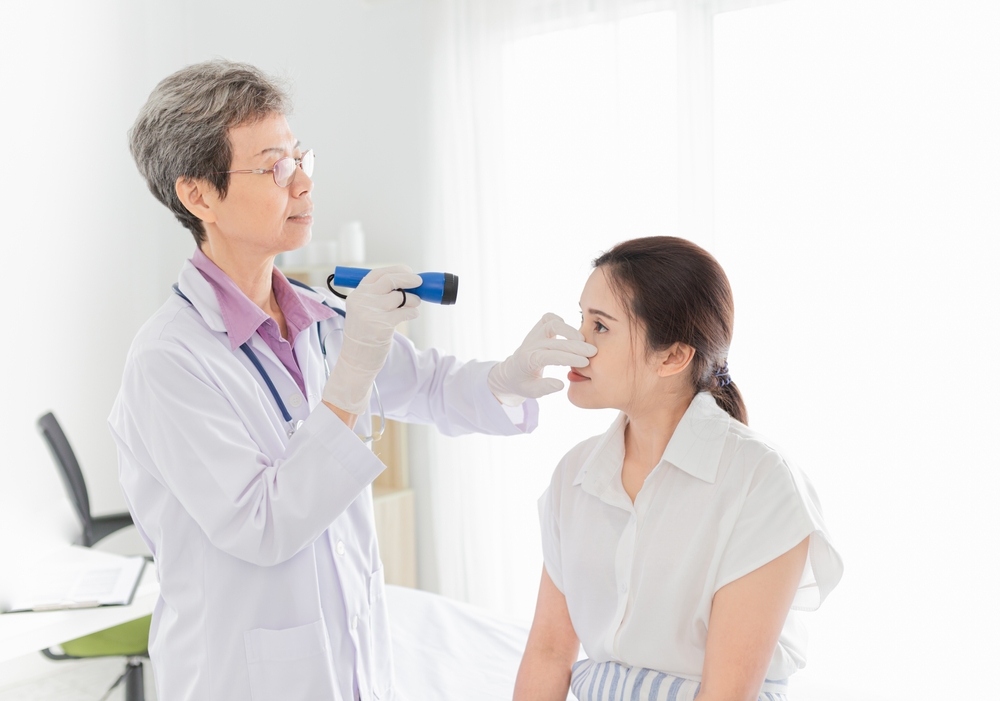
An eye emergency refers to any condition or injury that poses a threat to your vision or eye health and demands urgent medical intervention. Understanding the signs and symptoms of these emergencies is crucial for prompt action and preserving your eyesight.
Common Eye Emergencies and Their Symptoms
Several eye emergencies can arise, each with its own set of symptoms that warrant immediate attention. Here are some common eye emergencies and the signs to watch out for:
• Chemical Burns: Exposure to harmful chemicals can cause severe damage to your eyes. Symptoms may include pain, redness, excessive tearing, blurry vision, and sensitivity to light. If you experience any of these symptoms after exposure to chemicals, seek immediate medical attention.
• Foreign Objects: When a foreign object, such as dust, metal, or wood, enters your eye, it can cause discomfort and potential injury. Symptoms may include pain, redness, tearing, blurred vision, and the sensation of something in your eye. Do not rub your eye, as it may worsen the situation. Instead, seek professional help to safely remove the foreign object.
• Eye Infections: Infections such as conjunctivitis or keratitis can cause redness, itching, discharge, and discomfort. If you experience persistent symptoms or notice increased redness and swelling, it's important to consult an optometrist promptly to prevent the infection from spreading and causing further damage.
• Eye Trauma: Accidents or injuries can lead to various eye traumas, such as corneal abrasions, fractures, or retinal detachments. Symptoms may include pain, swelling, bleeding, blurred or loss of vision, and changes in the appearance of the eye. Seek immediate medical attention if you experience any of these symptoms, as timely intervention can significantly impact the outcome.
• Acute Glaucoma: Acute glaucoma is a sudden increase in eye pressure that can cause severe pain, blurred vision, headaches, nausea, and halos around lights. If you experience these symptoms, it's crucial to seek immediate optometric attention to prevent permanent vision loss.
The Importance of Immediate Optometric Attention
When it comes to eye emergencies, time is of the essence. Seeking immediate optometric attention can be the difference between preserving your vision or suffering permanent damage. Optometrists are trained professionals who specialize in eye care and have the expertise to diagnose and treat various eye emergencies effectively.
Immediate optometric attention is crucial because it allows for timely intervention and appropriate treatment. Optometrists can evaluate the extent of the emergency, provide pain relief, administer necessary medications, and take steps to prevent further damage. They can also refer you to specialists, if required, for more specialized care or surgical intervention.
Delaying or ignoring eye emergencies can have serious consequences. Some conditions, if left untreated, can lead to vision loss or even permanent blindness. By seeking immediate optometric attention, you give yourself the best chance of a positive outcome and minimize the potential long-term impact on your eyesight.
Eye Emergency Prevention Tips
While some eye emergencies are accidental and unavoidable, there are steps you can take to reduce the risk and protect your eyes. Here are some prevention tips to keep in mind:
• Wear Protective Eyewear: Whether you're engaging in sports, working with hazardous materials, or doing household chores, always wear appropriate eye protection. Safety goggles, glasses, or face shields can shield your eyes from potential accidents or chemical exposure.
• Practice Good Hygiene: Wash your hands frequently to prevent the spread of infections to your eyes. Avoid touching or rubbing your eyes with unwashed hands, as this can introduce bacteria and increase the risk of infection.
• Be Mindful of Your Environment: Be aware of your surroundings, especially in situations where eye injuries are more likely to occur. For example, when working with power tools, be cautious and maintain a safe distance to reduce the risk of flying debris entering your eyes.
• Avoid Sharing Personal Eye-related Items: To prevent the spread of infections, avoid sharing items like contact lenses, eye drops, or eye makeup. These items can harbor bacteria or viruses, increasing the chances of eye infections.
• Schedule Regular Eye Exams: Routine eye examinations are essential for maintaining good eye health. Regular check-ups allow optometrists to detect potential issues early on and provide appropriate preventive measures.
By adopting these preventive measures and being proactive in caring for your eyes, you can significantly reduce the likelihood of experiencing an eye emergency.
Protecting Your Vision and Eye Health
Stay vigilant and be aware of the common signs of eye emergencies, such as chemical burns, foreign objects, infections, trauma, and acute glaucoma. Seek immediate optometric attention if you experience any of these symptoms to minimize the potential damage and preserve your eyesight.
For more information on eye emergencies or for further guidance on treatment options, contact Cobb Corner Eye Care at our office in Stoughton, Massachusetts. Call (781) 344-3335 to schedule an appointment today.








